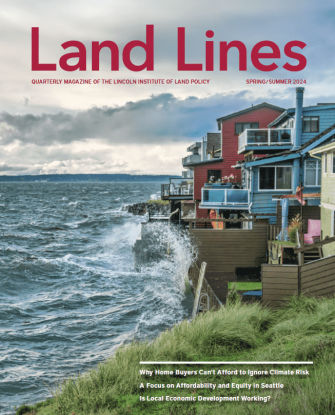Land Lines
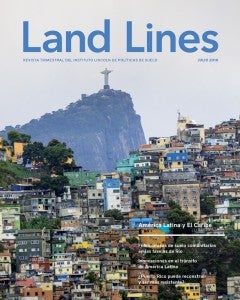
July 2018
This issue focuses on Latin America and the Caribbean, with features on community land trusts in Rio’s favelas, transit innovations in Latin America, and Puerto Rico’s recovery efforts, with an emphasis on rebuilding for greater resilience.
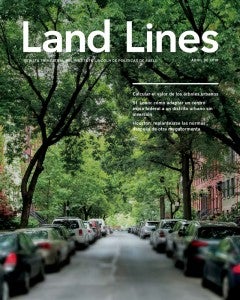
April 2018
This issue highlights the post-Hurricane Harvey policy changes under consideration in Houston as the prospect of more extreme weather looms, St. Louis’s efforts to integrate a federal spy center campus into its disinvested North Side, and tools for estimating the extent and value of urban trees. It also debuts the Mayor’s Desk interview with Lincoln Institute fellow Anthony Flint.
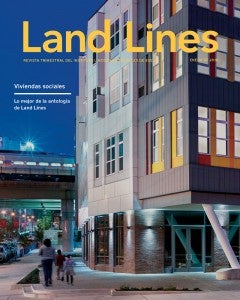
January 2018
This issue looks at the evolution of manufactured homes as a robust, desirable source of permanently affordable housing; innovative infill development in Portland, Boulder, Cambridge, and other hot-market cities; and capital absorption workshops that are helping to ease affordable housing shortages in Denver, San Francisco, and Los Angeles.
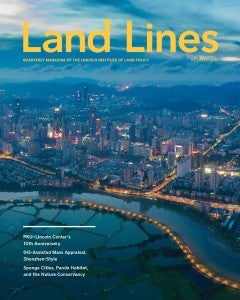
October 2017
This issue celebrates the 10-year anniversary of the Peking University–Lincoln Institute Center for Urban Development and Land Policy, with articles on GIS-assisted mass appraisal in Shenzhen, sponge cities, drones and land policy, conserving panda habitat, and WeChat Pay.
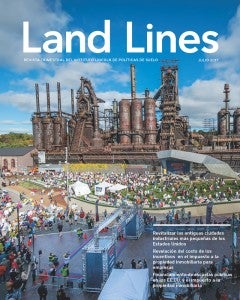
July 2017
This issue looks at strategies for revitalizing America’s smaller legacy cities, GASB 77 and the cost of property tax incentives for business, the future of U.S. public school revenue from the property tax, and Making Sense of Place, a Lincoln Institute initiative that will explore our human ties to land.

April 2017
This issue looks at value capture; business tax incentives; what app data can do for city planners; the latest comprehensive plans in Denver, Seattle, and Boston, where climate resilience and equity top the urban agenda; and the Capital Absorption Framework for community investment, helping cities attract and deploy the land, money, and other resources they need to improve quality of life.
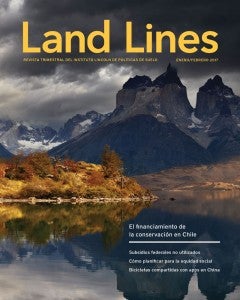
February 2017
This issue features content on planning for greater social equity, the mystery of unspent federal grants, the future of conservation finance in Chile, the challenge of transplanting urban innovations, and the growing market for app-activated bike-shares in China.
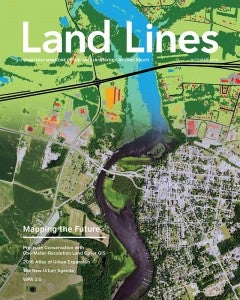
October 2016
In this special edition for Habitat III we map the future—with content on the New Urban Agenda; the 2016 Atlas of Urban Expansion, sponsored by UN-Habitat, New York University, and the Lincoln Institute; the Chesapeake Conservancy’s groundbreaking high-resolution land cover GIS; and the need for a U.S. infrastructure upgrade: a WPA 2.0.
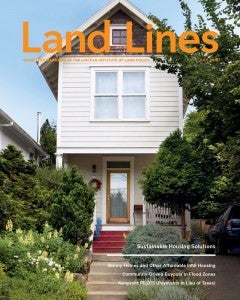
July 2016
In this issue, we feature articles on managed retreat, gentle infill, verifying green bonds, and subsidized Uber in the suburbs, as well as a policy brief on nonprofit PILOTs (payments in lieu of taxes).
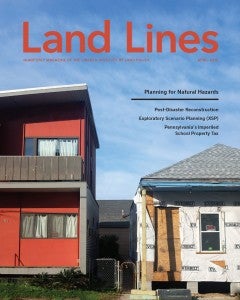
April 2016
In this issue, we feature articles on alternatives to a bill that would kill the school property tax in Pennsylvania, exploratory scenario planning, post-disaster recovery planning, CoUrbanize’s online community planning forum, and more.
Pages |
